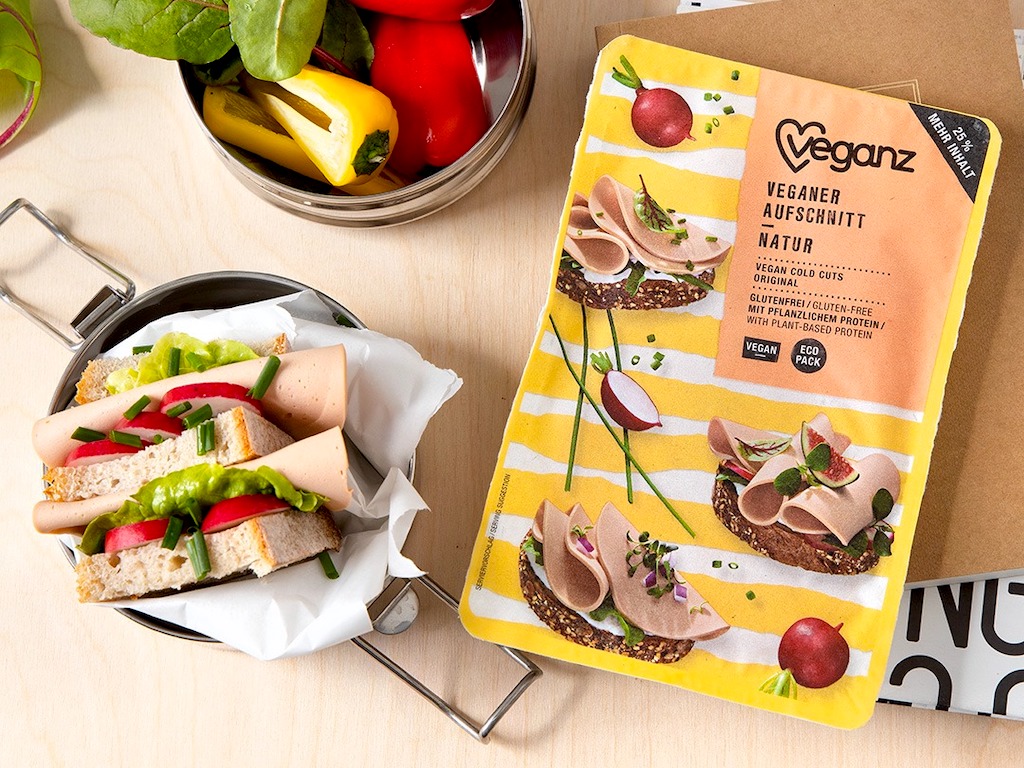USDA Foreign Ag Service To US Plant-Based Brands: Export To Germany Where 55% Are Flexitarians
5 Mins Read
A new report is encouraging US plant-based brands to export to Germany, describes as the ‘fastest-growing plant-based meat market in Europe’
While the US mainstream media is on a headline rampage against plant-based meat, the US Department of Agriculture’s foreign arm is publishing reports extolling the growth of the plant-based meat sector abroad to encourage US plant-based meat brands to lean in to export markets like Germany. So I guess that means the USDA doesn’t think plant-based meat is a has-been ‘fad’ then. Or maybe their copy of Bloomberg BusinessWeek got lost in the mail? But I digress…
The USDA’s Foreign Agricultural Service has just published a 12-page report titled ‘Plant-Based Food Goes Mainstream in Germany’ aimed at boosting US exports of plant-based foods to the European country, which the authors described as “one of the most important markets for plant-based food worldwide.”
In the report’s synopsis, the authors write: “German food culture is changing. The number of vegans is growing, and more than half of the population wants to reduce meat consumption, considering themselves flexitarian.” Sprichst du Deutsch?
While the report details the rise of the vegan food movement in Germany and describes the typical vegan consumer, it does not delve into the specifics of how this cultural shift took place, though one noteworthy takeaway is that unlike in many other countries, Germany benefits from overt political will for reducing meat consumption.
Nonetheless, the report gathers many interesting data points, which we break down below.
55% of the population is flexitarian or part-time vegetarian
55% or more than half of Germans describe themselves as “part-time vegetarians” or flexitarians, i.e. they are opting for less animal-based food on their plates. That’s close to 46 million people.
Germany has the highest rate of vegetarianism compared to its European neighbors. 8 million people followed a vegetarian diet, around 10% of the population. The number of vegans in Germany reached over 1.5 million people in 2022, compared to just 100,000 people 10 years ago – that’s an impressive 1,400% increase.
Beef, pork and milk are down, but cheese and chicken still popular
In 2011, Germans ate an average 138 pounds of meat each year. That number dropped to 121 pounds in 2021 or a 13% decrease. On the meat front, pork consumption is down by 23% (despite being Germany’s favorite meat), beef is stable and chicken is up by 13%.
Butter and milk consumption is down compared to 2021 levels (3% and 4% respectively) while cheese consumption is stable. 32% of consumers say that they will consume fewer dairy products (e.g., milk, yoghurt, cheese) in the next six months.
Politicians and NGOs support reducing meat consumption
There is political support in Germany for reducing meat consumption- the Green Party is currently part of the ruling government coalition and the country’s Green Minister of Food and Agriculture nutrition strategy includes a focus on plant-based diets.
Further, NGOs in Germany are more vocal about reducing meat consumption than elsewhere- the report cites the German Fridays for Future Movement website which advocates for halving meat consumption by 2035 in contrast to the US Fridays for Future Movement, which does not say anything about meat! Calling Greta!

Fastest-growing market for plant-based meat
Germany is the fastest-growing plant-based meat market in Europe and one of the fastest-growing plant-based dairy markets in Europe. Earlier today, I was shown off the record data suggesting that the total German plant-based meat category was up between 11% and 16% YoY in the first half of 2022. Every supermarket in Germany stocks plant-based alternatives and almost every major fast food chain has plant-based menu items. Interestingly, Germans are the most likely to pay more for plant-based meat than animal meat compared to citizens of other countries.
The average vegan is young, female and well-educated
Young Germans are driving the rise of flexitarianism, and seemingly bringing their parents along with them. The most commonly cited reasons for consumers to adopt a meat-free diet was moral or ethical in nature, with reasons that included animal welfare, climate conservation and industrial livestock farming. According to veggieworld, the average German vegan is female (81%), young (60% are between 20-39 years old), well-educated (70% have a high level of education), and has a high income.
Consumers across Europe losing their appetite for meat
Across Europe, consumers are eating less meat and are increasingly interested in plant-based foods.
A 2021 European survey byProVeg International and Innova Market Insights spanning 7,500 participants across 10 countries revealed that 46% of respondents had already cut their meat consumption, with just under 40% saying they plan on doing so in the future. The German data supports this trend.
This tracks with data from FMCG Gurus from last April around global consumer behavior trends, which stated that global consumers were planning to moderate their meat intake. 80% of the respondents said this was due to environmental concerns, while 74% felt that eating less meat was a healthier choice.
Brits lowering animal foods intake, French motivated by inflation
Earlier this year, the UK charity the Vegan Society shared the results of a survey they conducted of 2,000 participants: 33% of people said reducing or eliminating animal products is a priority in 2023 and 56% of non-vegans said they would decrease their animal product consumption.
Data analytics outfit Kantar just released its own report about French consumer spending habits in 2022. The report suggests that French people are buying less meat. While that’s good news for the planet, the planet is not their main motivation. Inflationary pressure is what’s keeping more French folks away from their steak hache.
That said, their consumption of plant-based alternatives (the exact wording used by the authors in French is “offres dites de transition alimentaire“, which loosely translates to “product selection aimed at the food transition”, but I am transliterating) is stable. The report states that despite rising food prices, eco-friendly, vegan and plant-based products continue to be popular since September 2022.





